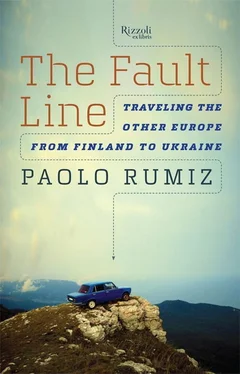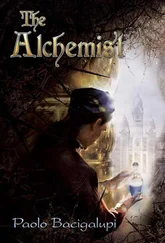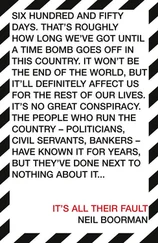What a surprise. The recluse island is not at all a desperate relic of the Khrushchev era. Detached from Mother Russia, surrounded on all sides by the star-spangled banner of the EU, it shows no traces of claustrophobia, despite the vexations of the Lithuanians, who have imposed a transit visa even on those Russians who, to reach it by land, must cross the territory of the EU without getting off the train. We’ve never seen as many stretch limousines as here, as many shopping centers, ATMs. This western outpost of the former empire, Putin’s favorite city, is living the easy life. The chief of the new Russia found his wife here, invests his rubles here, and here he has decided to play out his hand by dropping his strongest card: a military base in the middle of the West, like the eye in the huge head of a whale.
Let’s decline it then, the consonant of destiny. K as in Königsberg, to start with. Its old Baltic name, perfumed with sailing ships and merchandise. K as in Kaliningrad, today’s Soviet name, stuck on in 1945 to immortalize Comrade Mikhail Kalinin, who never visited it and became president of the USSR by vaunting his merit in having let his wife die in a Gulag. K as in Królewiec, the name given by the Poles to the most closed city in Europe, capital of the only piece of Russia detached from the Great Mother. An armor-plated planet sealed off from the world, half the size of Belgium, which the enlargement of the European Union has isolated even more than in the times of Leonid Brezhnev.
But K is also for Krieg , the war, the Second World War, which exterminated the Baltic Jews, forced the Prussians to escape, and reduced the cities to rubble. K is Kommunismus, the big freeze, which completed the job begun by the Allied bombers, deported the region’s inhabitants, militarized the territory, swept away its memory. Yet again, K as in Koka-Kola, symbol of the capital that today governs an enclave where everything is bought and sold: women, oil, nuclear warheads. Finally, K as in Kant. Immanuel Kant, founding father of modern thought and quintessence of German rigor. The philosopher is back in vogue in this advance outpost of the ex-USSR. He can be resuscitated partly because his memory has never truly been banned. Lenin did not fail to appreciate the German philosopher, and Stalin—having conquered the city—saved his tomb from demolition. Today, his shadow is reemerging, becoming a symbol of the West, perhaps the only one possible in a city deprived of its history. He is becoming a symbol partly because of the children of the population that was forced to immigrate here after the eviction of the natives. New-generation kids, like Lyudmila Putin, born here to a family of “alien” immigrants.
Today the newlyweds of Kaliningrad place flowers on the red granite stone that covers the remains of the great sage, behind an old redbrick Protestant church. Kant didn’t spend much time in churches. He contemplated the starry skies above him, and this caused him problems with the bigoted king of Prussia. Today there are those who come here to touch his death mask as though it were a good luck charm, not knowing that it is only a copy of the original, conserved in the University of Tartu, in Estonia. But that doesn’t much matter. Few people here have read a line of The Critique of Pure Reason , but that’s not important, either. Kant is an immanent thought, a shade who oversees the fascinating and terrible destiny of his city.
But K is also for Kristina, a twenty-year-old woman who invites us to stay at her house and picks us up at the station with a friend. She studies international relations (her friend, design), has an apartment with a bay window in the “good” part of the city, dreams of the great wide world, and flies to Berlin for weekends.
She has a father who sails, a mother who works in the finance industry, a sister who lives with her and passes the time playing video games. I’m astounded. My mental categories are in pieces. I’m looking at a Russia that has been totally Westernized. The frontier? No problem for Kristina; on the contrary, she experiences it as a resource, with the same “let the good times roll” spirit of New Orleans in the Prohibition era. She’s got other problems: building speculation, the dominance of the Muscovites, drugs and prostitution, the highest incidence of AIDS in Europe. Kristina is sure that her city, left free to attract investments, would become a Switzerland of the North. She says, “The Muscovites are rich; they come to the seaside here, but they build concrete monsters that nobody will ever live in, eliminate parks and squares; the identity of the place is in danger.”
To get a better understanding, we hop on a tram to the center of town, the first one that comes by. The food market is a people’s place, full of onions and smoked fish, where Kristina, accustomed to the restaurants of Berlin, would never go. An immense market, four times as big as the one in Budapest and much more authentic. In Budapest, you get only Hungary. At the market in Kaliningrad, you get the whole Soviet Union. Apricots from Uzbekistan. Cossack honey, sold by Cossacks. Smoked Baltic fish brought from Saint Petersburg. Crisp, crunchy bread from Azerbaijan. Throngs of peasants with blueberries and currants. Folk cures for tuberculosis and old age, such as bear fat, badger fat, and even dog fat, sealed under glass and lined up on the counter next to the sausage. Here you don’t get the bland blend of the global, but rather the succulent plurality of an empire.
In the pavilions, the pavement is a paste of dust, grease, and sugar that sticks to your shoes. All around, there are strange-looking types checking out everything, more often than not bristly Caucasians with eyes flashing like knives. One of them, attracted by my notebook, comes over to listen to the questions I pose to a meek pensioner who is selling dried fish and complaining about the prices. Nikolai Semyonovich, eighty-two, war vet, one functioning eye, asks how much somebody like him makes in Italy. The intruder listens, acting as if he belongs there. A while ago, he would have been a spy; today he is the guard for the gang that oversees the deals, gets rid of nose pokers, and makes sure there aren’t any thieves hanging around. I suddenly realize that in my entire trip through Russia I have never encountered a police officer.
I’m hungry. My stomach is whining like an untuned violin. There is an Azerbaijani tavern called Osyag that’s emitting irresistible smells of food and deals. I worm my way in. At a nearby table, three more bristly types are eating, answering their cell phones, and ostentatiously counting out wads of hundred-thousand-ruble notes. They’re doing everything possible to be seen, and so we strike up a conversation. I ask them how life is in Kaliningrad, and the most bristly of the three smiles radiantly, puts three fingers of his right hand over his mouth, kisses them with a smack of his lips, and replies, “Awesome.” Then he adds, “Life is easy. It’s a sweet place, and there are lots of deals to be made.”
A loaf of braided bread arrives, kefir with wild herbs, and exquisite dolmas stuffed with meat. Three gelid blond guys also arrive, Putin wannabes, and sit at the table of the Azerbaijanis. The ethnic division of the business couldn’t be clearer. The blond guys are the bosses of the territory, and they’ve come to pick up their percentage. A brief sotto voce chat, a meeting of the minds, and the blue wads of hundred-thousand notes change hands right under my nose. An enormous figure; to eyeball it, something like €300,000. A handshake, as it was done by the Sicilian clans in New York a century ago.
Outside of the Arcimboldian teeming masses, the surprises keep adding up.
Money machines that distribute, besides rubles, dollars in big and small denominations. Black megacylinder limos, ten or twelve yards long, with tinted windows, transporting to the town hall white-dressed brides and men in cream-colored suits. It’s the trendy color on the Baltic, the same color worn by the old couple I’d seen at the train station. The women are almost always stunning. The men are divided into two varieties: businessmen around forty, boxer builds, with horrible-looking bodyguards; or handsome, slender young men with passionate eyes, fired by an ardor unknown in the West. Monika slips into courtyards, snapping pictures in a light that changes by the minute, teetering between sunlight and rain.
Читать дальше












